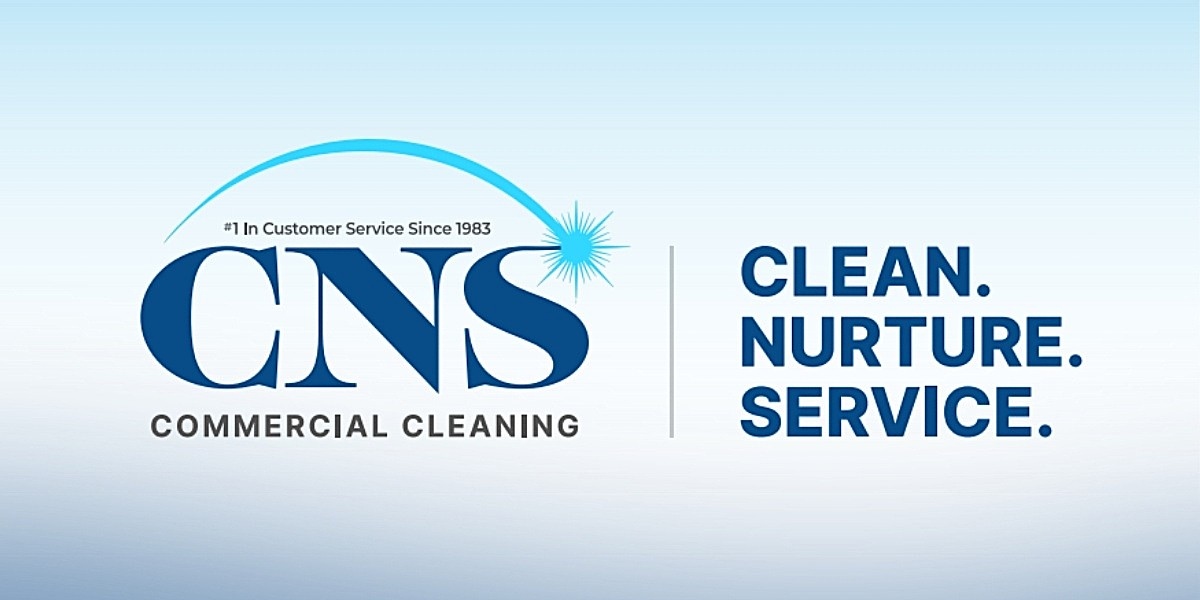By: Tom White
Choosing the right commercial cleaning partner is an operational decision with ripple effects across safety, perception, and cost. A good provider does more than remove dirt. It preserves assets, supports occupant health, and reduces management friction. CNS Cleaning Company offers experience-based guidance to help facility leaders choose a provider that delivers both high-quality service and dependable results.
CNS has observed that the professional cleaning industry has undergone a significant shift. “Buyers now expect consistent quality, rapid responsiveness, and documented, health-conscious practices,” says founder William Dunn. Demand for outsourced cleaning services and related supplies grew, primarily driven by heightened attention to hygiene. In parallel, public health agencies have tightened guidance on cleaning and disinfecting in nonclinical settings, raising expectations for documented protocols and measurable outcomes.
Amid this landscape, CNS asserts that experience and specialization continue to shape vendor selection. Providers with sector-aligned backgrounds and a history of steady performance tend to offer more reliable service than those marked by sporadic growth.
This reliability is often rooted in longevity, which correlates with refined systems for onboarding, quality control, and continuity during turnover. A focused commercial scope further signals familiarity with the operational realities of regulated or high-traffic environments.
As procurement decisions become more data-driven, trust in service providers hinges on peer validation. “Independent ratings and client testimonials serve as essential indicators of reliability. A track record of repeat referrals and visible customer satisfaction reflects competence and the ability to sustain service over time,” Dunn remarks.
Trust also depends on how well a provider operates at scale. The ability to serve multiple locations and respond quickly is closely linked when evaluating reliability. Effective providers show how they coordinate supervision, logistics, and reporting across different sites, as well as how they handle emergencies or unexpected situations without disruption.
“Responsiveness isn’t just about having the right tech. It’s also about having the right habits,” Dunn stresses. “Real-time reporting tools help, but what really makes the difference is a proven workflow for escalation and resolution. That’s how you avoid downtime and protect your reputation.”
CNS argues that to deliver consistent outcomes, providers must rely on robust systems. Standardized checklists, digital quality reporting, and regular audits translate intent into repeatable results. Structured training ensures staff understand not only what to do but why it matters. Industry guidance increasingly emphasizes documented procedures as essential controls for safe and effective cleaning. “Providers who can articulate their training pipeline and quality assurance protocols tend to outperform those who cannot,” Dunn states.
Equally important is transparency. Contracts without performance checks risk complacency, while strong agreements set clear expectations, allow ongoing evaluation, and tailor services to site-specific needs. Providers who communicate openly and facilities teams who negotiate with clarity tend to avoid pitfalls and maintain control.
Operational excellence also depends on the people behind the service. CNS believes that staff training, safety protocols, and equipment choices influence outcomes in tangible ways. Verifiable training programs and certifications showcase a company’s commitment to safety, with leading providers treating training as a continuous investment rather than a one-time event.
Budget alignment further reflects a provider’s operational understanding. A well-constructed quote incorporates listening, a tailored scope, and clear decisions around frequency, materials, and value-added services. While cost remains a factor, fit and transparency offer stronger indicators of a sound proposal. This is especially true when solutions anticipate client needs and provide scalable options as operations evolve.
In this context, CNS positions itself as an independent, customer-first operator with consistent execution and centralized accountability. With over 40 years of experience, it emphasizes direct responsibility, dedicated supervision, and a service orientation that prioritizes communication and follow-through, with plans tailored to each client’s environment and compliance requirements.
This commitment is reflected in the CNS service model, which relies on clear communication, proactive reporting, and dedicated oversight to reduce surprises for facility managers. Clients benefit from customized sanitation protocols, environmentally responsible product selection, and a feedback-driven approach that fosters continuous improvement and stronger partnerships.
A case study brings this model to life. During a post-renovation preparation at a prominent cultural site, CNS developed a bespoke finishing plan that prioritized fragile surfaces and living collections. Specialized techniques and environmentally sensitive products were employed, and coordination with the client’s operations team ensured a polished opening. This integration of process, training, and client-focused communication exemplifies effective facility support.
Overall, selecting a cleaning partner reflects values as much as capability. Providers, such as CNS Cleaning Company, who demonstrate repeatable systems, independent validation of client satisfaction, transparent commercial terms, and operational bandwidth tend to deliver the most reliable outcomes.









